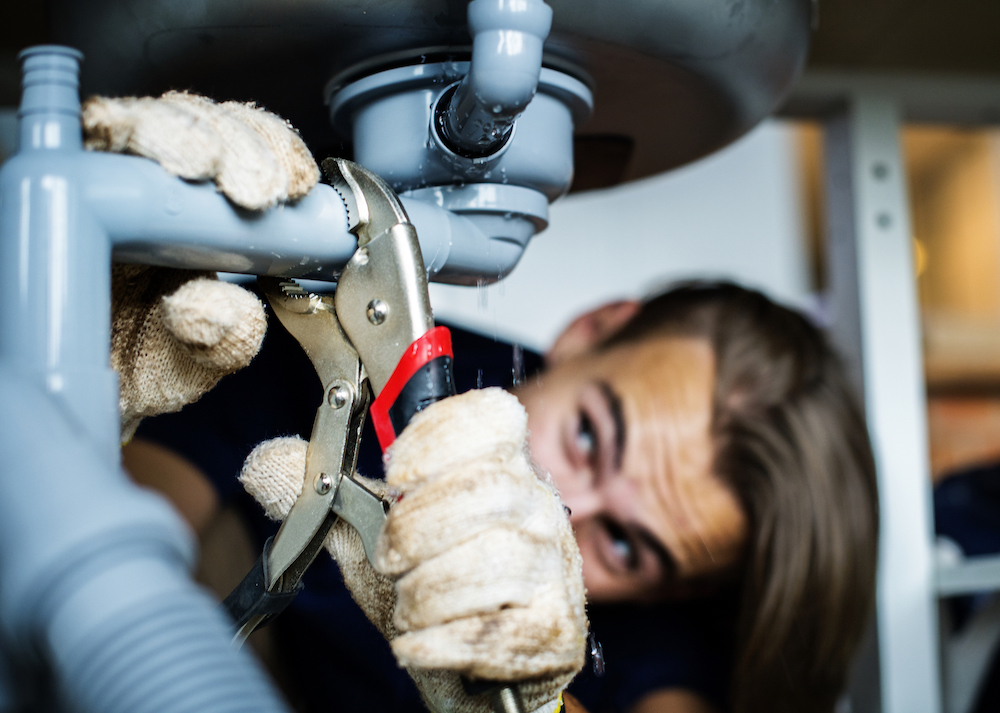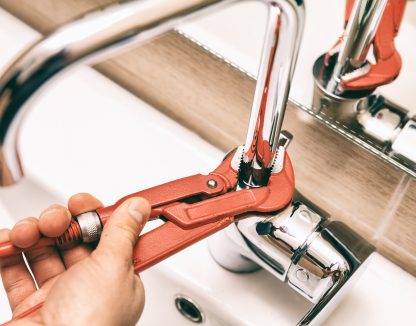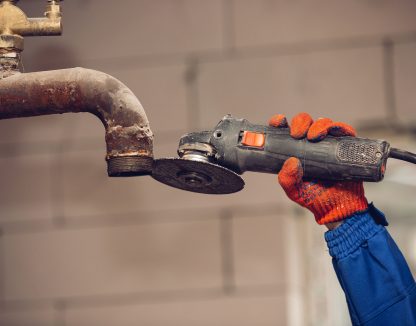Are you currently offering plumbing service agreements to your customers? Service agreements are a fantastic way for plumbing businesses to provide great customer service, keep your profits flowing in your business, and create future jobs by offering customers regular maintenance services.
Click here to access our free template today!
What is a Plumbing Service Agreement?
A plumbing service agreement, also known as a plumbing or service contract, is a legal document that outlines the scope of work to be performed and the terms and conditions of the plumbing services provided. This is used interchangeably with a plumbing maintenance contract which is a legal agreement between a plumbing company and its customer to perform routine maintenance on the customer’s system. This agreement typically covers inspections, cleaning, and minor repairs, such as fixing leaks or unclogging drains.
What Should You Include in a Plumbing Service Agreement?
They usually include specific services the plumbing company will perform, what materials and equipment will be used, pricing information including payment terms and schedules, and a description of what is not included in the contract. You create a legally binding document that protects your plumbing company and the customer by including these elements in your service agreement. Regardless of the approach taken, it is essential to ensure that the contract is clear and concise and includes all relevant details about the plumbing services to provide the best service to your customer.
How to Write a Plumbing Service Agreement
In theory, you can write your service agreement for plumbing work, but it’s not recommended because it is a legal document that creates a legally binding agreement between two parties. If you’re not a legal expert, it can be challenging to draft a contract that covers all the necessary details and protects your interests.
What Are The Benefits of Plumbing Service Agreements?
Routine maintenance can extend the lifespan of your customer’s plumbing system or water heater to prevent leaks and generate ongoing revenue for your business. In the long run, plumbing maintenance agreements are worth the investment for both home plumbing contractors and homeowners. For example, a contract may specify routine maintenance and service calls, which can help to avoid costly repairs in the future, and when they need a repair, you are there to help!
Payzer Custom Service Agreements
Payzerware can help you offer and manage maintenance agreements on every job so you can maximize your revenue with ease. Payzerware’s mobile workflow simplifies the process of setting up maintenance customers, collecting payments, and scheduling future service with just a few clicks. Try the maintenance agreements calculator to see the impact they can have on your business.
Frequently Asked Questions About Plumbing Service Agreements
Are plumbing maintenance plans worth it?
Yes, plumbing maintenance plans can be worth it for homeowners or businesses. Regular maintenance of plumbing systems can prevent costly repairs and replacements in the future. Plumbing maintenance plans typically involve inspections, cleaning, and repairs to ensure that the plumbing systems are functioning efficiently and effectively. These plans may also include priority service and discounts on future repairs. The cost of a plumbing maintenance plan can vary depending on the provider and the level of service included in the plan. However, the cost of a maintenance plan is often less than the cost of unexpected repairs or replacements.
What is required in a service agreement?
A service agreement is a contract that outlines the terms and conditions of a service being provided by one party to another. The specific requirements of a service agreement can vary depending on the nature of the service being provided and the needs of the parties involved. However, some common elements that may be included in a service agreement are:
- Description of the service being provided
- Payment terms and pricing structure
- Responsibilities and obligations of each party
- Timeline for the service to be provided
- Terms for terminating the agreement
- Confidentiality and non-disclosure provisions
- Warranties and guarantees
- Liability and indemnification provisions
- Dispute resolution mechanisms
- Governing law and jurisdiction
It is important to ensure that a service agreement is comprehensive and legally binding to protect both parties and to ensure that expectations are clearly outlined and understood. It is recommended that legal advice is sought to ensure that the service agreement is tailored to meet the specific needs of the parties involved.







